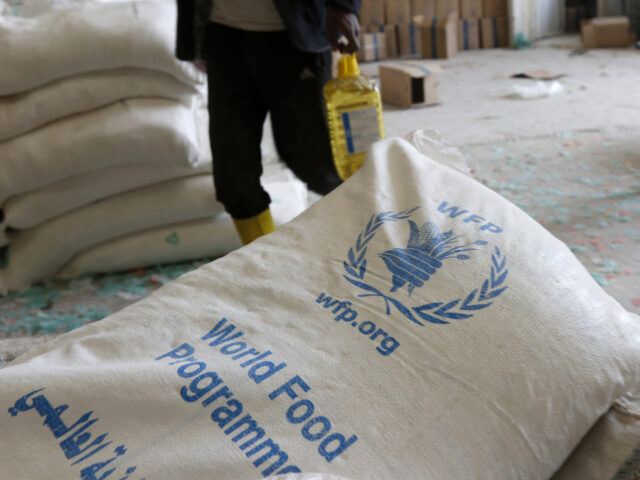The rapid inflation in the cost of fertilisers as a result of the Ukraine war could see as many as one million additional people die of hunger-related deaths, a report has claimed.
A study undertaken by researchers from the University of Edinburgh, University of Aberdeen, Karlsruhe Institute of Technology and Rutgers University has found that up to one million more people could die as a result of hunger as a result of increased worldwide fertiliser prices.
Russia’s invasion of Ukraine last year kicked off a considerable supply chain crisis for both grains and fertilisers, with shortages in both areas prompting fears that many vulnerable nations could be pushed into famine.
However, while it was reportedly expected that the sudden absence of Ukrainian grain from the world market would cause the most amount of chaos — with the eastern European nation being traditionally responsible for a sizable share of the world’s grain supply — researchers have now found that it is the increased cost of fertiliser that is putting more people at risk.
According to the results of their study, around 100 million people could be put at risk of hunger should fertiliser prices continue to rise, with such additives being necessary for the supply of large yields in modern farming. The modelling predicted that on average, food prices may rise by as much as 81 per cent this year compared to 2021 levels.
The researchers say that such price rises are also likely to coincide with up to one million extra deaths worldwide from people not having enough to eat as food gets more expensive.
While the researchers acknowledge that such price increases will hit people all across the world, it warns that the world’s poorest are at the greatest risk of suffering, with the majority of extra deaths expected to be in Africa and the Middle East.
What’s more, modelling indicates that should trends continue, a lack of fertiliser would mean that additional farmland equivalent to the area of Western Europe will be needed to keep everyone across the world fed by 2030.
“This could be the end of an era of cheap food,” Dr Peter Alexander of Edinburgh’s School of GeoSciences warned. “While almost everyone will feel the effects of that on their weekly shop, it’s the poorest people in society, who may already struggle to afford enough healthy food, who will be hit hardest.”
“More needs to be done to break the link between higher food prices and harm to human health and the environment,” he went on to say.
Green Agenda: Minister Ignores Ukraine Food Crisis Warnings in Favour of Solving ‘Nature Emergency’https://t.co/J2tbJCOZEI
— Breitbart London (@BreitbartLondon) March 14, 2022
Although the researcher’s assessment of the proportion of dangers facing the world food supply appears to be somewhat innovative, the suggestion that the increasing cost of fertiliser could jeopardise crop yields is not a new one.
Since Russia rolled tanks across the Ukrainian border last year, experts at all levels of the world food trade have warned of the dire impacts increased fertiliser prices could have, with much of the essential components of such modern fertilisers coming from both Russia and Ukraine.
“Half the world’s population gets food as a result of fertilisers… and if that’s removed from the field for some crops, [the yield] will drop by 50 per cent,” one senior individual involved in the fertiliser trade, Svein Tore Holsether, remarked in March last year.
“For me, it’s not whether we are moving into a global food crisis – it’s how large the crisis will be,” he went on to say.
Meanwhile, the head of the United Nations’ World Food Programme, David Beasley, previously warned of the massive destabilising effects that failing supplies could have on vulnerable countries.
“Failure to provide this year a few extra billion dollars means you’re going to have famine, destabilization, and mass migration,” he warned in 2022.
“If you think we’ve got Hell on earth now, you just get ready,” the former Republican Governor of South Carolina continued. “If we neglect northern Africa, northern Africa’s coming to Europe. If we neglect the Middle East, [the] Middle East is coming to Europe.”
What About Food? English Farmers Offered More Money to Adopt Green Agenda https://t.co/41StxmRhfp
— Breitbart London (@BreitbartLondon) January 8, 2023

COMMENTS
Please let us know if you're having issues with commenting.